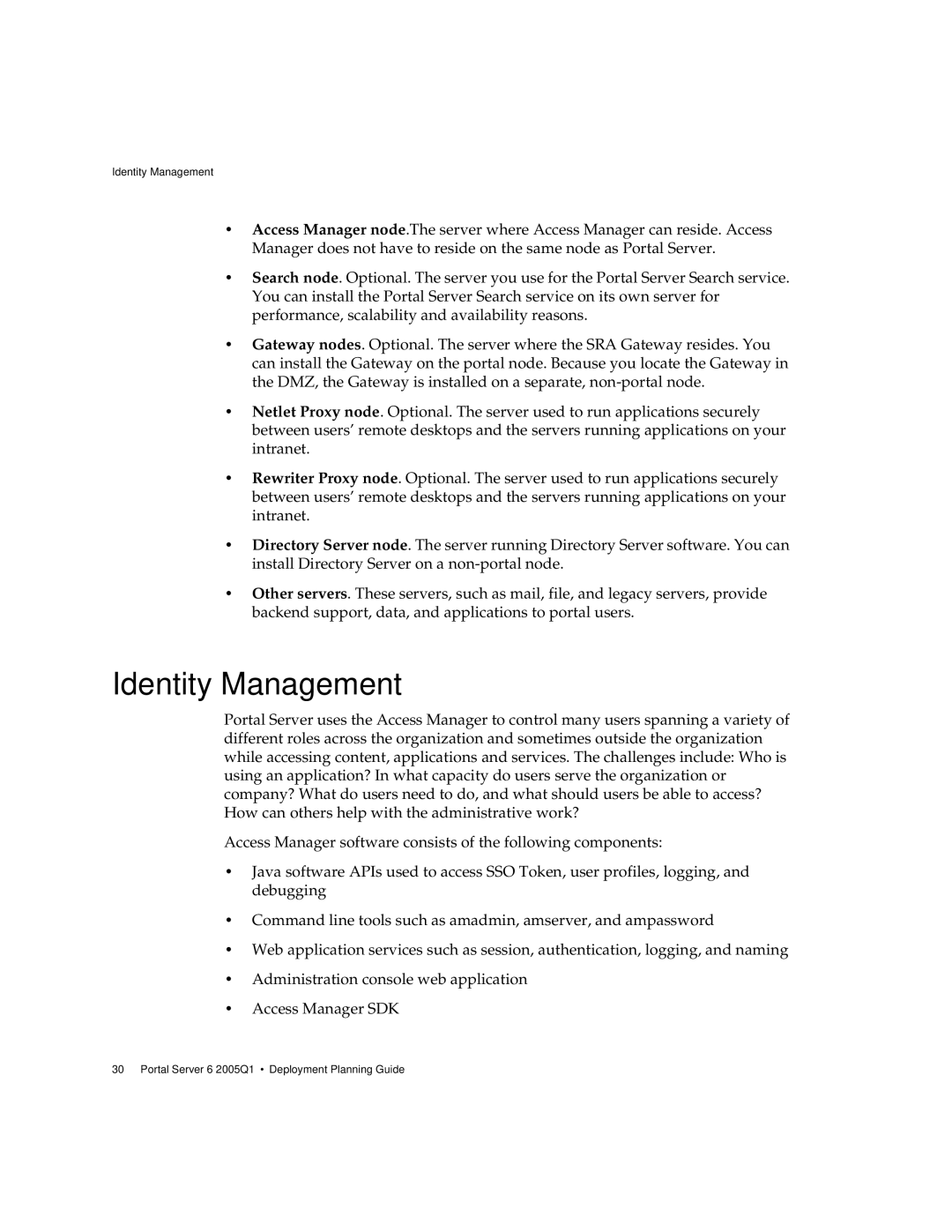Identity Management
•Access Manager node.The server where Access Manager can reside. Access Manager does not have to reside on the same node as Portal Server.
•Search node. Optional. The server you use for the Portal Server Search service. You can install the Portal Server Search service on its own server for performance, scalability and availability reasons.
•Gateway nodes. Optional. The server where the SRA Gateway resides. You can install the Gateway on the portal node. Because you locate the Gateway in the DMZ, the Gateway is installed on a separate,
•Netlet Proxy node. Optional. The server used to run applications securely between users’ remote desktops and the servers running applications on your intranet.
•Rewriter Proxy node. Optional. The server used to run applications securely between users’ remote desktops and the servers running applications on your intranet.
•Directory Server node. The server running Directory Server software. You can install Directory Server on a
•Other servers. These servers, such as mail, file, and legacy servers, provide backend support, data, and applications to portal users.
Identity Management
Portal Server uses the Access Manager to control many users spanning a variety of different roles across the organization and sometimes outside the organization while accessing content, applications and services. The challenges include: Who is using an application? In what capacity do users serve the organization or company? What do users need to do, and what should users be able to access? How can others help with the administrative work?
Access Manager software consists of the following components:
•Java software APIs used to access SSO Token, user profiles, logging, and debugging
•Command line tools such as amadmin, amserver, and ampassword
•Web application services such as session, authentication, logging, and naming
•Administration console web application
•Access Manager SDK
